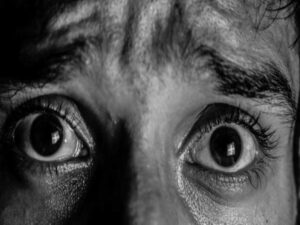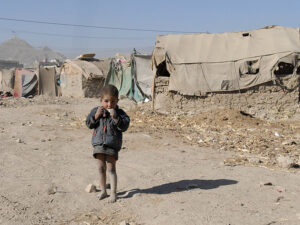Taxing the rich less benefits everyone else, so says the argument underling trickle-down economics. The idea is that the rich use the money that would have gone to the taxman to invest in the economy, helping spur economic growth. In reality, the outcome of taxing the rich less is that (shock, horror) it leads to the rich becoming richer. Trickle-down economics is nothing more than a social Ponzi scheme, which has all kinds of corrosive social impacts.
The argument favouring trickle-down economics was first used by Reagan in the US and Thatcher in the UK. These two titans of neoliberalism (an ideology that argues for small government and unfettered free markets) began dominating politics in the early 1980s.
But trickle-down economics has always been a myth, served to society to justify the rich paying low levels of tax. In some cases, at lower rates than any other section of society.
The outcome of the rich paying less tax is not to the benefit of all. Rather than the benefits of economic growth filtering through society, the exact opposite happens. In this Ponzi scheme, the benefits of economic growth filter up, making the rich far richer and everyone else worse off.
The effect is that the wealth that could support the poorest in society gets sucked up by the rich.
During the 1980s, when trickle-down economics began dominating political policy in many Western countries, inequality began increasing, and it hasn’t stopped since.
This is not a coincidence. Increasing inequality is a result of concerted government policy whose objective is to ensure the rich don’t pay taxes. Little wonder then that current levels of inequality are at their highest level since the gilded age, a hundred years ago.
Twisted upside down
Compounding the problem is tax-havens. It would be all good and well if the rich used their wealth to invest in the market, but much of this wealth gets siphoned into tax havens where the rich and powerful pay no tax at all.
There, it serves no purpose other than for rich people to log into their bank account and look at how much money they have, doing absolutely nothing for no one.
The tragedy is that if the wealthy paid their fair share, the money left to sit in bank accounts could contribute to the social good, thereby enhancing the ability of governments to provide everyone with a platform to lead a thriving, fulfilling life.
But that would involve everyone believing they are part of a society. The idea that we are all part of an interconnected society seems to be lost on many. In a world of rampant individualism, success is defined by having more money and stuff than everyone else. Not by any social contributions you make.
Even if your wealth has come as a direct result of other people’s suffering, great, because no one cares — you gain respect from being rich, not by how you became rich.
A flawed argument
The basic argument supporting economic growth is that it increases incomes, creating a rising tide that raises all boats.
At present economic growth serves an altogether different agenda; to increase the size of some boats. Meanwhile, everyone else has to battle against waves created by these boats.
Why the game is so morally bankrupt is that working people who create social value, key workers like doctors, nurses, firefighters, social workers, dustbin men, builders — the list goes in — they are the ones that pay high rates of tax through income tax.
The rich, on the other hand, make fortunes by investing their money through the stock market. Capital gains are taxed at a low rate — and so the people with the most, who make the least social contributions, pay the least amount of tax.
To say the current state of affairs is unjust doesn’t quite do justice to the injustice. And yet it’s no surprise that the rich make the least contributions to society because they are the ones that heavily influenced the tax code.
A sorry injustice
Clearly, it is a sorry injustice that the richest, who often make the least social contributions, pay the least towards the services shared by all. At the same time, those on low incomes pay the most. Whatever way you look at it, it makes no sense.
Here is where the impact of this group of self-interested individuals has such a corrosive impact on society. Everyone knows the rules of the game are crafted in favour of the rich. Everyone knows that life is by design unjust. It need not be this way, but each person feels powerless to do anything about it because, by and large, they are powerless.
They have bills to pay, children to feed, mortgages to pay. They need to go to work because the consequences of not are a life of suffering and destitution. The issue is that because everyone knows the rules work against them, it inspires everyone to be more ruthless.
How tragic that people end up being ruthless to those around them. To the very people on their team, who are also struggling and suffering the consequences of a system where the rules work against them.
Designed for the 1%
Rather than creating solidarity between people, a system designed for the 1% creates mistrust between people who are all suffering the effects of an unjust system.
For each person, it feels like the only way to solve the issue is to try and strike it rich and join the wealthy. Once in the club, you can happily look down at everyone else. The only thing is that it’s called the 1% for a reason. Only 1% of people are rich enough to be a part of the 1%. It is a club shared by a tiny minority.
The thing about this unjust system is that because the rich try their best not to pay tax, it seems only fair that everyone else would also try their best to get out of it. Why should they pay tax when the rich aren’t? It encourages each person to see themselves as self-interested individuals where they must also be ruthless in the jungle that life has become.
There are solutions to control levels of inequality, we could introduce a wealth tax, ban tax havens and the influence of the rich over political decisions.
All of these ideas would help. But it’s all good and well saying what we could do, the fact of the matter is that as the richer the rich become, they become even more powerful. The more power they have the more influence they have over politicians — creating a vicious cycle.
So long as governments that represent the rich remain in power, the status quo will remain. The only way for things to change is if people stand up and say enough is enough. If they refuse to accept that the rules of the game have been crafted to benefit a tiny minority, a system that is by design unjust could change. Only then may politicians do anything about it, but that day doesn’t seem likely to come any time soon.



